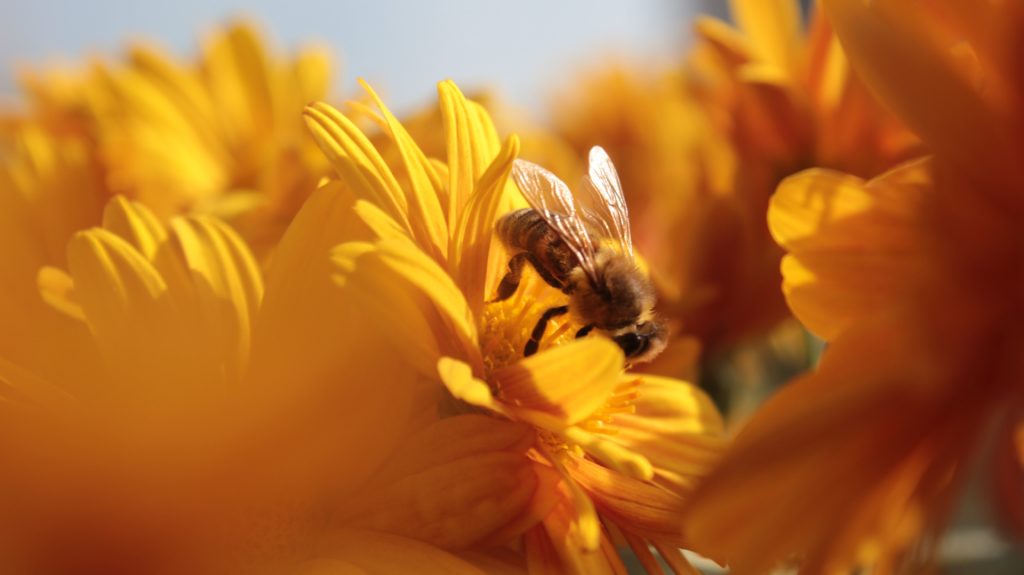Our tiny, golden neighbours have their very own day today. May 20 celebrates bees around the world because they truly are that important to our Earth. Here’s a little more information about the day, what some people are doing for World Bee Day 2021, as well as some sweet and strange facts about bees.
World Bee Day?
As of December 2017, the United Nations approved this day. It’s all about raising awareness regarding the threats that surround our little pollinators, as well as inspiring initiatives to help out our buzzing brethren.
What are people doing for World Bee Day?
Greenpop
This World Bee Day we are happy to welcome @NUXE South Africa to the family!
Their pledge forms part of the Boland Trees for Bees Pledge Fund in collaboration with @beeeffect2017 and @BolandCellar
Learn more about it here:https://t.co/SqQJDKAv4y
— Greenpop (@Greenpop) May 20, 2021
Gift of the Givers
World Bee Day ?
After #KnysnaFires destroyed more than 60000 bees, #GiftOfTheGivers has been invested in the conservation of bees. #MakeADifference #ForTheGreaterGood #SocialUpliftment #DisasterResponse #SouthAfrica pic.twitter.com/5O7dbYgp46
— Gift of the Givers (@GiftoftheGivers) May 20, 2021
Angelina Jolie
Angelina Jolie is working with UNESCO and Guerlain on a Women for Bees initiative that will ultimately build 2,500 bee hives and restock 125 million bees by 2025—while training and supporting 50 women beekeepers in their own operations. #WorldBeeDay https://t.co/l8Y3UcR5in pic.twitter.com/FNyPHQpPAN
— National Geographic (@NatGeo) May 20, 2021
Why bees are really important for the Earth and South Africa
View this post on Instagram
- Food security: The world’s population is growing and that means we need more food. Since nearly three-quarters of the plants that produce 90% of the world’s food are pollinated by bees, it makes them a necessity for food security.
- Healthcare: Bee byproducts are super beneficial for our health as humans. From Beeswax to propolis and honeybee venom, there are many medicinal properties that we use and can thank bees for.
- Ecological balance: The pollination that bees are responsible for is also essential for protecting and maintaining ecosystems. Bees help maintain and control biodiversity on our planet. Small but mighty heroes!
- In SA: over 50 crops are dependent on bee pollination. When considering that roughly 107 of the world’s crops are dependent on bees, we can see that we as a country rely heavily on bees.
- Quality of fruits and veggies: Bees are also very important for improving our fruit set, weight and quality! So bees actually help make one of our largest agricultural sectors produce even better quality.
The Bees-knees: some fun and simply strange facts about the creatures
1.Honey bees have been making honey in the same way for 150 million years
2. Rhythm is a dancer: Bees communicate by dancing
The move is called the “waggle dance.”
3. On the search: Bees can detect explosives
“Entomologists have long known that honeybees can be trained to detect many scents, including the olfactory footprints of deadly explosives,” (technology review).
4. Roughly one-third of the world’s food supply is a result of bees pollination
Bees play a very important role in food security as a result, all over the world.
5. Bees love caffeine
“Pp to 55 percent of flowering plants are estimated to have caffeinated nectar,” wrote The New York Times in an article about bees and their caffeinated lives.
6. Bees can tell humans apart
Indeed, a honeybee can depict and remember a human face. So if you pose a threat, it’s likely the bee will remember your face as a threatening one. Don’t be mean to bees, they will remember you.
7.The Queen Bee can live for up to five years

Considering that worker bees only live for a max of five to six weeks, it’s an incredibly long life span. Long live the Queen Bee?
How can we help the bees in everyday ways?
- Buy honey from local beekeepers. This supports the ethics of beekeeping practices.
- Plant more native flowers from your area in your garden to attract bees to a flower they will be familiar with.
- Or plant more trees for bees. Bees get most of their nectar from trees, as a matter of fact. Additionally, the cavities in trees make lovely shelters for bees.
- A bee bath: Bees get thirsty when grafting too. You can fill up a birdbath and add some pebbles for bees to land on.
- Let your grass grow a little, it gives bees shelter!
- Don’t use pesticides.
- You can even set up a bee garden with all of the above if you’re really feeling inspired.
We hope you’ve (bee)n inspired!
Picture: Unsplash

